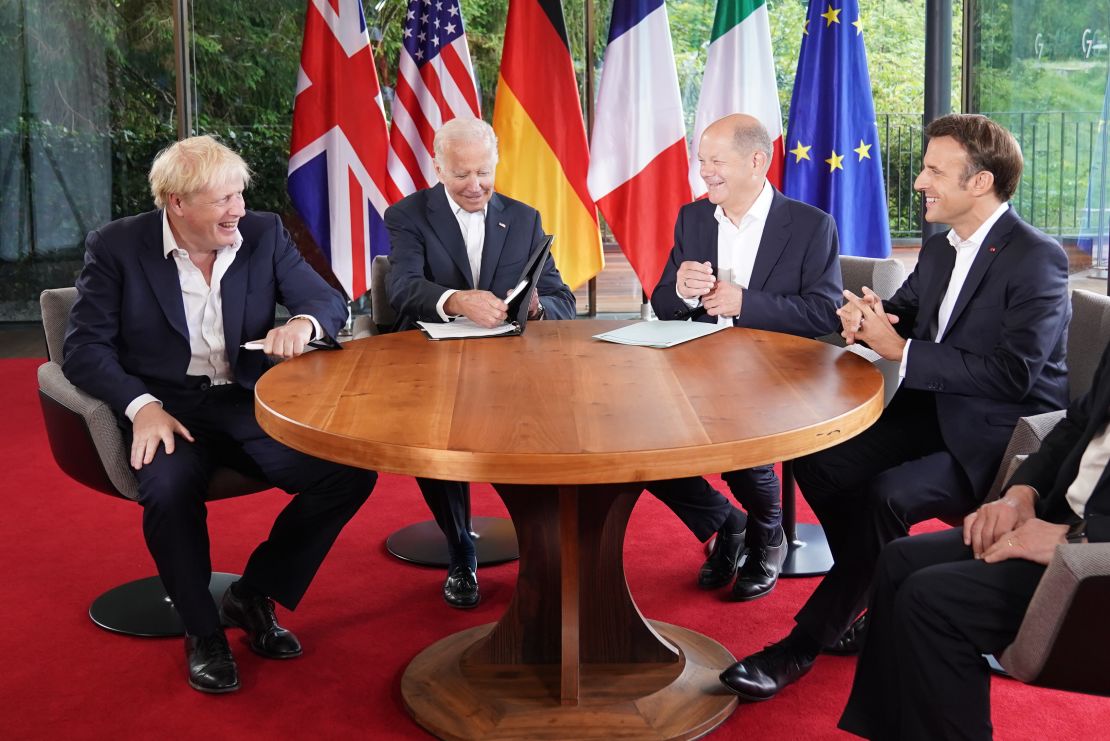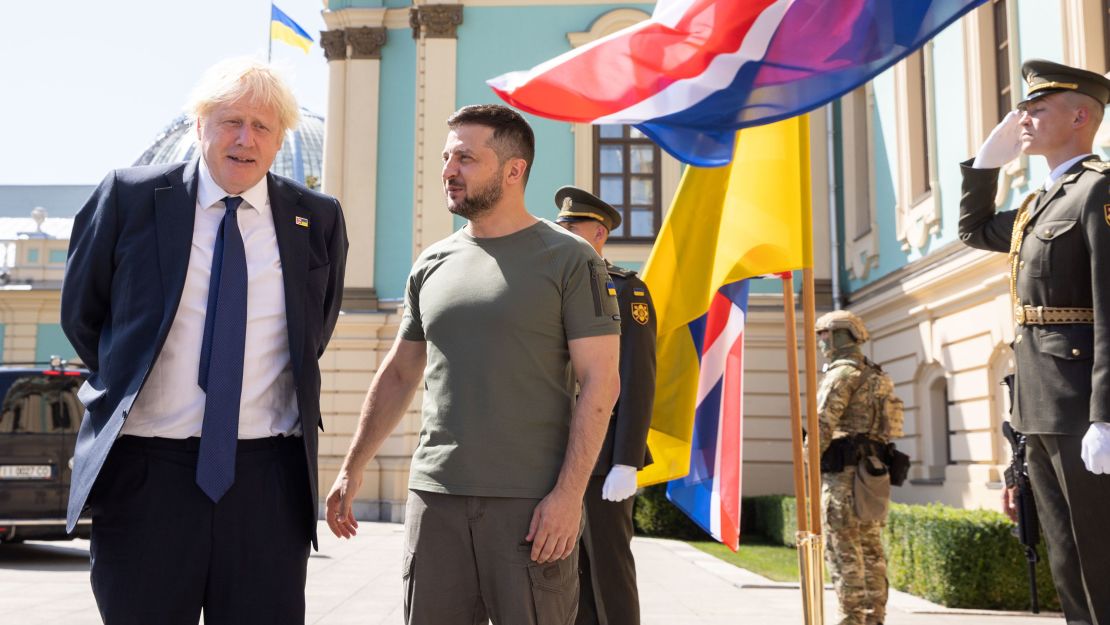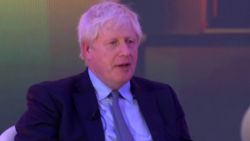Former British Prime Minister Boris Johnson has claimed France was “in denial” about the prospect of a Russian invasion of Ukraine, and accused the German government of initially favoring a quick Ukrainian military defeat over a long conflict.
Johnson told CNN’s partner network CNN Portugal on Monday that the attitudes of Western nations varied widely before Moscow launched its all-out invasion of Ukraine on February 24, singling out three leading EU countries in comments that are unlikely to be welcomed in European capitals.
His comment drew a stinging denial from Germany, which accused the ex-pPM of having “a unique relationship with the truth.”
While Johnson stressed that EU nations later rallied behind Ukraine and are now providing steadfast support, he said that was not universally the case in the period before the Russian invasion.
“This thing was a huge shock … we could see the Russian battalion tactical groups amassing, but different countries had very different perspectives,” Johnson told CNN’s Richard Quest in Portugal.
“The German view was at one stage that if it were going to happen, which would be a disaster, then it would be better for the whole thing to be over quickly, and for Ukraine to fold,” Johnson claimed, citing “all sorts of sound economic reasons” for that approach.
“I couldn’t support that, I thought that was a disastrous way of looking at it. But I can understand why they thought and felt as they did,” Johnson went on. Germany has rapidly sought to reduce its reliance on Russian energy since Moscow’s invasion.
“Be in no doubt that the French were in denial right up until the last moment,” Johnson also said.

French President Emmanuel Macron fronted Europe’s efforts to dissuade Vladimir Putin from invading Ukraine, visiting him in the Kremlin just weeks before the Russian leader ordered his troops into the country. In March, the chief of French military intelligence, Gen. Eric Vidaud, was told to step down from his post partly for “failing to anticipate” the Russian invasion of Ukraine, a military source with knowledge of the matter told CNN at the time.
Johnson also criticized Italy’s initial response to the threat of an invasion. He told Quest that its government – at the time led by Mario Draghi – was “at one stage simply saying that they would be unable to support the position we were taking,” given their “massive” reliance on Russian hydrocarbons.
CNN has reached out to the French and German governments. Draghi’s office declined to comment.
On Wednesday Miguel Berger, the German ambassador to the UK, shared a comment on Twitter that he attributed to a government spokesperson: “We know that the very entertaining former Prime Minister always has a unique relationship with the truth. This case is also no exception.”
Many observers initially believed a Russian invasion of Ukraine would be completed within weeks or days, but Kyiv’s forces instead repelled Moscow’s initial lunge towards the capital and have more recently conducted successful counter-offensives to regain ground in the east and south of the country.
Johnson said that once Russia launched its invasion in February, attitudes across Europe changed quickly.
“What happened was everybody – Germans, French, Italians, everybody, (US President) Joe Biden – saw that there was simply no option. Because you couldn’t negotiate with this guy (Putin). That’s the key point,” the ex-Prime Minister said, adding that the “the EU has done brilliantly” in its opposition of Russia since that time.

“After all my anxieties … I pay tribute to the way the EU has acted. They have been united. The sanctions were tough,” Johnson went on.
During his period in office, Johnson frequently criticized Russia’s invasion and forged a close relationship with Ukrainian President Volodymyr Zelensky. Johnson was forced to resign in July after repeated scandals sank his reputation and caused dozens of his ministers to resign.

Johnson told CNN that Zelensky has been “absolutely outstanding” in his leadership. “He’s a very brave guy. I think the history of this conflict would have been totally, totally different it he hadn’t been there.”
He added that “if Ukraine chooses to be a member of the EU, they should go for it. and I think it would be a good thing for Ukraine,” helping it achieve political and economic reform. Kyiv applied to join the bloc earlier this year.
Johnson was replaced in Downing Street by Liz Truss, who had the shortest tenure of any British Prime Minister. Her disastrous seven-week term was sunk by a “mini-budget” that spooked markets and caused global financial agencies to express alarm.
In a euphemistic criticism of that mini-budget, Johnson told Quest: “It’s kind of like when I play the piano. The notes individually sound perfectly OK, but they’re not in the right order, or occurring at the right time.”
Truss has since been replaced by Johnson’s Chancellor-turned-political rival, Rishi Sunak, who visited Kyiv for the first time as Prime Minister on Saturday.
















